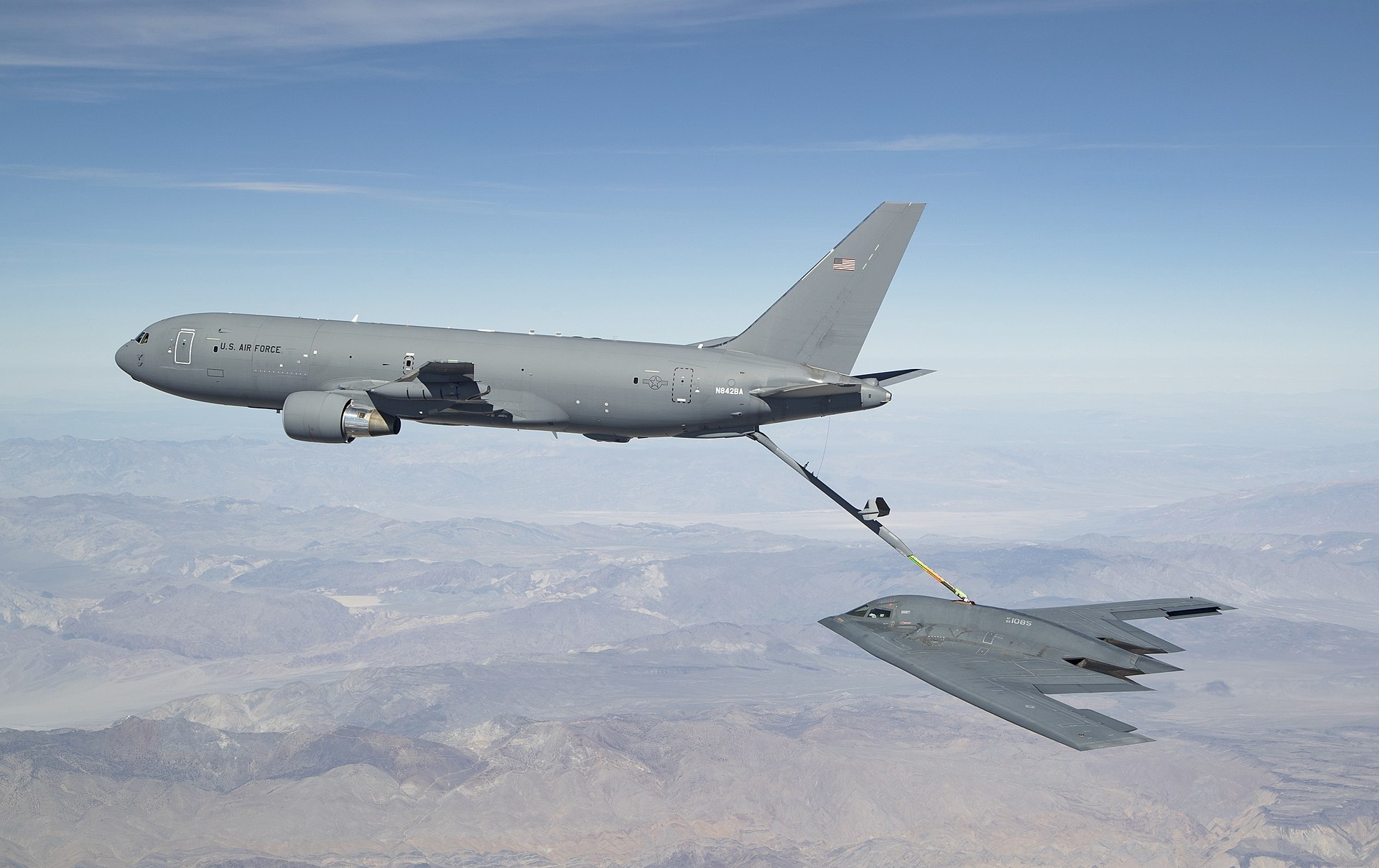The United States may ask the United Kingdom for permission to station refuelling aircraft at the British base in Akrotiri if it enters the conflict between Iran and Israel, according to reports on Thursday.
With US President Donald Trump said to be considering the prospect of entering the conflict on the side of Israel, the UK’s Sky News reported that he may ask the UK for permission to station aircraft in Cyprus.
Sky News reported that the US has already sent tanker aircraft, which are used to refuel fighter jets mid-flight, to both Spain and Greece, and that an American aircraft carrier is expected to arrive in the region “within the next five to seven days”.
It added that this bolstering of American force in the region “is currently in a defensive posture, designed to deter Iran from striking against US interests”, but that “it could be turned into an offensive force”.
Meanwhile, the same outlet reported that American B-52 bombers and other jets have already been deployed to Diego Garcia, a British base in the Indian Ocean, and that this deployment constitutes “part of a massive expansion of US firepower in the region”.
The BBC reported that Trump has “approved plans to attack Iran, but has not made a final decision on whether to strike the country”.
Trump is, according to multiple outlets, considering a US strike on Fordow, a uranium enrichment facility built under a mountain near the Iranian city of Qom.
Asked on Wednesday whether he would directly involve the US in the conflict, he had said, “I may do it, I may not”.
Reports of American aircraft being stationed in Cyprus with a view to the country directly involving itself comes after Iran had warned the US, the UK, and France that their bases and ships in the region will be targeted if they help to stop its missile strikes on Israel.
Later, Iran’s ambassador in Nicosia Alireza Salarian said his country had “already raised this concern to the relevant authority” and added that “if we see any aggression from the third country, we have the right to response”.
The UK’s Defence Secretary John Healey had meanwhile said following the first deployment of British aircraft to the region that more “will follow in [the] coming days”.
“We have always supported Israel’s right to security, and we have had grave concerns about Iran’s nuclear programme, and I repeat the call on all sides to show restraint,” he said, adding that “a diplomatic resolution rather than military action is the only route to lasting stability”.
He then pointed out that “the military assets including the additional Typhoon jets announced by the prime minister [Sir Keir Starmer] have begun arriving”.
Starmer had on Sunday confirmed that the UK would increase its presence in the Middle East.
Publicly available flight data has shown heightened aeronautical activity from the Royal Air Force’s Akrotiri base in recent days, with flights in the southern Levantine Sea and over Jordanian airspace having been recorded by publicly available radar systems.
On Monday, a British bases spokesman was unable to confirm or deny to the Cyprus Mail whether the aircraft have been stationed in Cyprus or elsewhere in the region, and the while the Cyprus Mail attempted to contact the British defence ministry, it has not received a response.
In addition to its two sovereign base areas in Akrotiri and Dhekelia, the UK also has access to the Al Minhad airbase in the United Arab Emirates and the Al Udeid airbase in Qatar.
Later that same day, the UK’s Foreign Secretary David Lammy had said the country’s bases in Cyprus are “hugely important at this time”.
“The government would be irresponsible if we did not account for all possibilities at this time,” he added.
He then went on to say that “this is a very tense time if you are in Jordan, the United Arab Emirates, Saudi Arabia, Bahrain, or Cyprus”.
Meanwhile, when asked if the UK would come to Israel’s aid if asked to do so, Chancellor of the Exchequer Rachel Reeves said that “we have, in the past, supported Israel when there have been missiles coming in.
“We’re sending in assets to both protect ourselves and also potentially to support our allies”.
Last year, Cyprus was the likely launchpad for the military support offered by the United Kingdom to defend Israel from a volley of Iranian missiles launched at the start of October.
The British defence ministry had at the time announced that two RAF Typhoon fighter jets and one Voyager air-to-air refuelling tanker “played their part in attempts to prevent further escalation in the Middle East”.
This, they said, demonstrated “the UK’s unwavering commitment to Israel’s security”.






Click here to change your cookie preferences